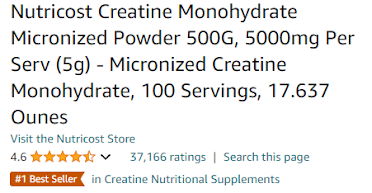How to Start Eating Healthy for Beginners
Starting a journey toward healthier eating habits can be intimidating, especially with so much dietary advice available. However, adopting a healthy eating routine doesn’t have to be complicated. This comprehensive guide offers practical tips and step-by-step advice to help beginners transition to a healthier diet, focusing on balanced nutrition, meal planning, and sustainable habits. How to Start Eating Healthy for Beginners🍎🥗
Understanding the Basics of Healthy Eating
What Is "Healthy Eating"?
Healthy eating means consuming a variety of foods that provide the nutrients needed for optimal health and well-being. These supplements incorporate proteins, carbs, fats, nutrients, minerals, and water. A balanced diet helps maintain a healthy weight, supports growth, repairs tissues, and prevents chronic diseases.
The Importance of a Balanced Diet
A balanced diet ensures that your body gets the essential nutrients in the right proportions. Key components of a balanced diet include:
- Fruits and Vegetables: Plentiful in
nutrients, minerals, and fiber.
- Whole Grains: Give supported energy and
significant supplements.
- Lean Proteins: Essential for muscle repair and
growth.
- Healthy Fats: Important for brain health and
energy.
Step-by-Step Guide to Starting a Healthy Diet
Evaluate Your Ongoing Dietary patterns
Before making any changes, understand your current eating habits. Keep a food diary for a week to track what you eat and drink, including portion sizes, meal times, and any snacks or drinks consumed between meals. This will help you identify areas for improvement.
Set Realistic Goals
Set achievable and specific goals to guide your
healthy eating journey. Start with small changes, such as incorporating more
vegetables into your meals or reducing sugary drinks. Realistic goals help
maintain motivation and make sustainable changes.
Educate Yourself
Understanding basic nutrition will empower you to make
healthier choices. Familiarize yourself with the major food groups, portion
sizes, and the importance of nutrients. Reliable sources of information include
government health websites, registered dietitians, and reputable nutrition
books.
Plan Your Meals
Dinner arranging is critical for keeping a sound eating routine. It ensures a balanced intake of nutrients and prevents unhealthy, last-minute food choices.
Tips for effective meal planning include:
- Plan Weekly Meals: Dedicate a day to plan your
meals for the upcoming week.
- Create a Grocery List: Based on your meal plan,
make a list of ingredients you need.
- Prep in Advance: Prepare ingredients or meals in
advance to save time during the week.
Incorporate a Variety of Foods
Eating various food varieties guarantees that you get
a large number of supplements. Experiment with different fruits, vegetables,
whole grains, and proteins to keep your meals interesting and nutritionally
balanced. 🌽🍇
Making Healthy Food Choices
Fruits and Vegetables
Products of the soil ought to make up a critical piece of your eating regimen. They are rich in vitamins, minerals, and fiber, essential for maintaining good health. Go for the gold five servings of foods grown from the ground every day.
Tips for incorporating more into your diet
include:
- Add Fruits to Breakfast: Top your cereal or
yogurt with fresh fruit.
- Vegetable Snacks: Keep cut-up vegetables handy
for quick snacks.
- Include Vegetables in Every Meal: Add them to
soups, stews, and stir-fries.
Whole Grains
Whole grains are a good source of complex
carbohydrates and fiber, providing sustained energy and aiding digestion.
Examples of whole grains include:
- Brown Rice
- Quinoa
- Oats
- Whole Wheat Bread
Replace refined grains with whole grains to improve
the nutritional quality of your diet.
Lean Proteins
Proteins are fundamental for building and fixing tissues, creating chemicals, and supporting safe capability. Incorporate an assortment of protein sources in your eating regimen, for example,
- Lean Meats: Chicken, turkey, and lean cuts of
meat or pork.
- Fish and Seafood: Rich in omega-3 fatty acids.
- Plant-Based Proteins: Beans, lentils, tofu, and
tempeh.
- Eggs and Dairy: Good sources of high-quality
protein.
GNC Pro Performance 100% Whey Protein Powder - Vanilla Cream, 25 Servings, Supports Healthy Metabolism and Lean Muscle Recovery
Healthy Fats
Not all fats are bad for you. Healthy fats are vital
for brain function, hormone production, and overall health. Sources of healthy
fats include:
- Avocados
- Fatty Fish: Like salmon and mackerel.
Stay away from trans fats and cutoff immersed
fats tracked down in handled and seared food sources.
Practical Tips for Eating Healthy
Control Portion Sizes
Segment control is essential for keeping a sound
weight. Utilize more modest plates and bowls to assist with overseeing segment
sizes. Center around longing and finishing prompts to go without
reveling.
Stay Hydrated
Water is essential for overall health, aiding in
digestion, nutrient absorption, and temperature regulation. Aim for
the stars eight glasses of water a day. Limit sweet beverages and pick
water, home grown teas, or shining water all things considered.
Read Food Labels
Understanding food names can assist you with pursuing
better decisions. Look for:
- Serving Size: Check the serving size and the
number of servings that are in the bundle.
- Calories: Monitor your calorie intake based on
your daily needs.
- Nutrients: Aim for high fiber, vitamins, and minerals, and lower sodium, added sugars, and unhealthy fats
Cook at Home
Cooking at home allows you to control the ingredients
and cooking methods used. Experiment with healthy recipes and try new cooking
techniques, such as grilling, steaming, or baking, to make your meals
healthier.
Limit Processed Foods
Handled food varieties frequently contain elevated
degrees of added sugars, unfortunate fats, and sodium. Reduce your intake of
processed and packaged foods by choosing whole, unprocessed foods whenever
possible.
Building Sustainable Healthy Eating Habits
Start Slowly
Making drastic changes overnight can be overwhelming
and hard to sustain. Begin by making little, continuous changes to your eating
regimen. For example, replace one sugary drink a day with water or add one
extra serving of vegetables to your dinner.
Be Consistent
Consistency is key to building lasting healthy eating
habits. Stick to your meal plan, keep healthy snacks available, and make
conscious food choices even when dining out or traveling.
Listen to Your Body
Focus on how various food varieties cause you to feel.
Notice how your energy levels, mood, and digestion respond to healthy changes
in your diet. Listening to your body helps in making adjustments that work best
for you.
 |
| Mini Stepper Stair Stepper Foldable Pedal Stepper Exercise Equipment Twist Stepper Machine with Resistance Bands Max 150kg |
Stay Positive
Maintaining a positive attitude towards healthy eating
is crucial. Celebrate your successes, no matter how small, and don't be too
hard on yourself for occasional indulgences. A positive mindset will keep you
motivated and committed to your healthy eating goals.
Addressing Common Challenges
Busy Lifestyles
A busy lifestyle can make it challenging to eat
healthy. Here are a few hints to defeat this:
- Meal Prep: Set aside time to prepare meals and
snacks in advance.
- Healthy On-the-Go Options: Keep healthy snacks,
such as nuts, fruits, or yogurt, readily available.
- Quick Recipes: Opt for simple and quick recipes
that don’t require extensive cooking time.
Budget Constraints
Eating solid on a careful spending plan is conceivable
with some preparation:
- Buy in Bulk: Purchase staples like grains,
beans, and nuts in bulk.
- Seasonal Produce: Choose seasonal fruits and
vegetables, which are often cheaper and fresher.
- Plan Meals Around Sales: Check for discounts and
plan your meals accordingly.
Picky Eaters
For picky eaters, introducing new foods can be challenging.
Try these strategies:
- Gradual Introduction: Introduce new foods
gradually and in small portions.
- Creative Presentation: Make healthy foods more
appealing by presenting them in fun and creative ways.
- Involve in Cooking: Encourage participation in
meal preparation to increase interest in trying new foods.
The Role of Physical Activity
Complementing Healthy Eating with Exercise
A healthy lifestyle involves both good nutrition and
regular physical activity. Exercise complements healthy eating by helping to:
- Maintain a Healthy Weight: Burn calories and
build muscle.
- Improve Mood: Release endorphins that boost mood
and reduce stress.
- Enhance Overall Health: Strengthen the
cardiovascular system, bones, and muscles.
Types of Physical Activities
Integrate different proactive tasks into your daily
schedule, for example,
- Aerobic Exercises: Walking, running, swimming,
or cycling.
- Strength Training: Weight lifting, resistance
bands, or body-weight exercises.
- Flexibility Exercises: Yoga or stretching
routines.
Seeking Professional Guidance
Consulting a Dietitian or Nutritionist
If you’re unsure where to start or need personalized
advice, consulting a registered dietitian or nutritionist can be beneficial.
They can provide tailored recommendations based on your individual health
needs, preferences, and goals.
Online Resources and Communities
There are numerous online resources and communities
that offer support and information on healthy eating. Websites, forums, and
social media groups can provide recipes, tips, and encouragement from others on
a similar journey.
Conclusion
Starting to eat healthy as a beginner might seem
challenging, but with the right approach and mindset,it can become a rewardingand sustainable lifestyle change. By understanding the basics of nutrition,
setting realistic goals, planning your meals, and making conscious food
choices, you can pave the way for a healthier future. Remember to stay
consistent, listen to your body, and seek support when needed. Embrace the
journey to better health and enjoy the benefits of a nutritious diet.
















0 Comments